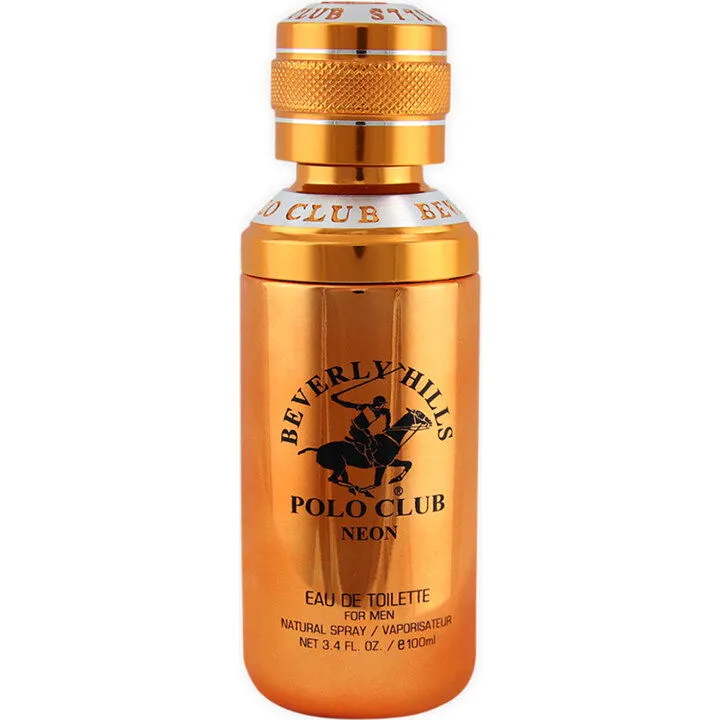Understanding Coconut Charcoal Teeth Whitening
In the quest for a brighter, more confident smile, teeth whitening has become increasingly popular. Among the various methods available, coconut charcoal teeth whitening has emerged as a trending topic. This guide delves into the specifics of coconut charcoal whitening, particularly focusing on its application in conjunction with products from brands like Beverly Hills Polo Club, offering a comprehensive overview of its benefits, usage, and considerations. This approach promises a natural alternative for enhancing the brightness of your teeth, and this guide will help you navigate this option effectively. Discover how this method works, its potential, and how it can fit into your daily oral hygiene routine.
What is Coconut Charcoal
Coconut charcoal is a fine, black powder made from coconut shells. It undergoes a special process called carbonization, where the shells are heated to create a porous material. This process significantly increases the charcoal’s surface area, making it highly absorbent. This porous nature is key to its ability to trap and remove impurities. The use of coconut charcoal is not new; it has been used for various purposes for centuries. In the context of teeth whitening, its abrasive qualities help to scrub away stains and discolorations from the teeth surface. This makes it a popular choice for those seeking a natural whitening solution, moving away from chemical-based treatments and embracing a more holistic approach to dental care.
The Benefits of Coconut Charcoal for Teeth

The primary benefit of coconut charcoal is its ability to whiten teeth. The porous structure of the charcoal acts like a magnet, attracting and absorbing stains caused by substances like coffee, tea, and wine. In addition to whitening, some users report that coconut charcoal helps to remove plaque and bacteria. It also helps freshen breath, contributing to improved oral hygiene. Many individuals are drawn to coconut charcoal due to its natural origin, making it an appealing alternative for those cautious about harsh chemicals found in conventional whitening products. Regular use, as part of a comprehensive oral care routine, can help maintain a brighter smile and a healthier mouth.
The Science Behind Teeth Whitening
Teeth whitening, regardless of the method, aims to remove stains and discolorations from the enamel. Surface stains, caused by external factors, are relatively easy to remove. Coconut charcoal works by gently scrubbing away these surface stains. However, deeper stains, that penetrate the dentin (the layer beneath the enamel), may require more aggressive treatments, such as those used in professional whitening. Coconut charcoal’s effectiveness is primarily on extrinsic stains. It is important to remember that the results can vary based on the type and severity of the staining, as well as individual oral health conditions. Understanding the science behind teeth whitening helps to set realistic expectations.
How Effective is Coconut Charcoal Whitening?
The effectiveness of coconut charcoal whitening is a topic of ongoing discussion. Many users report positive results, noticing a visible improvement in the brightness of their teeth. However, scientific evidence supporting its effectiveness is limited compared to professional methods. The results are often subjective and depend on factors like the type of stains, the frequency of use, and the individual’s oral hygiene habits. Coconut charcoal is generally considered a milder option compared to chemical-based treatments. Therefore, it may be more effective for removing mild surface stains rather than deep-seated discolorations. Realistic expectations and consistent use are key to achieving the best possible results.
Beverly Hills Polo Club and Teeth Whitening

Beverly Hills Polo Club, known for its lifestyle and fashion products, has also ventured into the realm of oral care, including teeth whitening solutions. Their products often combine the natural properties of coconut charcoal with other ingredients designed to enhance whitening and improve oral hygiene. The brand’s approach typically focuses on providing accessible and user-friendly products that fit into daily routines. Beverly Hills Polo Club’s products aim to offer a convenient way for consumers to incorporate coconut charcoal into their oral care without significant changes to their existing habits. This makes it an attractive option for those new to coconut charcoal whitening or looking for a trusted brand.
Introducing Beverly Hills Polo Club Products
Beverly Hills Polo Club offers various teeth whitening products that incorporate coconut charcoal. These often include toothpastes, powders, and whitening kits. Their products are designed for ease of use, often featuring convenient application methods to fit seamlessly into daily routines. The formulations are developed to gently remove stains and promote a brighter smile while catering to consumer preferences for natural ingredients. They emphasize a holistic approach, integrating whitening with overall oral hygiene practices. The packaging is designed to reflect the brand’s lifestyle image, making the products both effective and aesthetically appealing.
The Specific Coconut Charcoal Products
Beverly Hills Polo Club’s coconut charcoal products typically include toothpastes, which combine charcoal with other cleaning and whitening agents, and tooth powders, offering a concentrated form of charcoal for enhanced stain removal. Whitening kits may include charcoal-infused strips or pens for targeted application. The products often come with additional ingredients such as mint for fresh breath, or fluoride to strengthen enamel. The formulations are designed to be gentle on the enamel while effectively removing stains. They provide consumers with a range of options, enabling them to select a product that best suits their needs and preferences. The brand ensures its products integrate well into existing oral care routines.
Ingredients and Formulation

The ingredients in Beverly Hills Polo Club’s coconut charcoal products usually consist of activated coconut charcoal as the primary whitening agent. Other common ingredients include natural flavors like peppermint or spearmint, to enhance the user experience and freshen breath. Some products contain fluoride to help strengthen tooth enamel and protect against cavities. The formulation may also include mild abrasives to aid in stain removal, ensuring a balance between effectiveness and enamel safety. They are often free from harsh chemicals such as sulfates. The products are formulated to be gentle and effective, providing users with a natural approach to teeth whitening.
How to Use Coconut Charcoal for Whitening
Step-by-Step Guide to Application
Using coconut charcoal involves a few simple steps. For toothpaste, brush your teeth as usual, ensuring you cover all surfaces. If using powder, wet your toothbrush and dip it into the powder. Brush your teeth gently for approximately 2-3 minutes, allowing the charcoal to remove stains. Rinse your mouth thoroughly with water until all traces of charcoal are gone. Repeat this process once or twice daily for best results. Following these instructions is crucial for maximizing the benefits and minimizing any potential side effects. Consistent use, combined with good oral hygiene practices, supports optimal teeth whitening.
Dosage and Frequency

The recommended dosage and frequency of using coconut charcoal products depend on the specific product and individual preferences. Generally, brushing once or twice a day is sufficient to see noticeable results. Avoid excessive brushing, as it can potentially erode the enamel. Pay attention to any sensitivity or discomfort, adjusting the frequency as needed. For tooth powders, use a small amount to avoid abrasiveness. It is crucial to follow the instructions on the product packaging. Consistency is key to achieving the desired whitening effect and maintaining a healthy smile.
Potential Side Effects and Considerations
Sensitivity and Irritation
Some users may experience increased tooth sensitivity or gum irritation when using coconut charcoal. This is often temporary and can be minimized by using the product less frequently or reducing the pressure while brushing. If sensitivity persists, it’s best to consult with a dentist. It’s important to choose products that are formulated to be gentle on the teeth and gums. Proper brushing technique is key to avoiding any discomfort. The health of your teeth and gums is paramount, so be attentive to how your mouth responds to the treatment.
Long-Term Effects

The long-term effects of using coconut charcoal for teeth whitening are still being studied. While many users report positive experiences, it’s essential to be aware of potential risks. Excessive use can potentially erode tooth enamel over time, leading to increased sensitivity and a higher risk of cavities. It is crucial to use coconut charcoal as part of a broader oral hygiene routine, including regular dental check-ups and proper brushing techniques. Moderation and a balanced approach are key to ensuring long-term oral health and the maintenance of a brighter smile.
Comparing Coconut Charcoal to Other Methods
Professional Whitening vs. DIY
Professional teeth whitening, performed by a dentist, typically involves the use of stronger bleaching agents and can deliver more dramatic and immediate results. These treatments are conducted under controlled conditions, minimizing the risk of side effects. DIY methods, like coconut charcoal, offer a more affordable and accessible alternative. While they may not produce the same level of whitening, they can be effective for removing surface stains and maintaining a brighter smile. The choice between professional and DIY whitening depends on individual needs, budget, and desired results. A consultation with a dentist can help determine the most suitable option.
Other Home Remedies

In addition to coconut charcoal, various other home remedies are used for teeth whitening. These include baking soda, which acts as a mild abrasive, and hydrogen peroxide, which has bleaching properties. Some people use fruit-based treatments, like strawberries, due to their malic acid content. These methods can offer varying degrees of effectiveness and may come with certain limitations or potential risks. It’s important to research and understand the potential benefits and drawbacks of each method. Always consult a dentist before trying any new home remedies to ensure they are safe and suitable for your oral health.
Maintaining Your White Smile
Diet and Lifestyle
Diet and lifestyle choices significantly impact the brightness of your smile. Consuming foods and drinks known to stain teeth, such as coffee, tea, red wine, and berries, can reduce the effectiveness of whitening treatments. Avoiding or minimizing these substances is crucial for maintaining a white smile. Quitting smoking and reducing exposure to tobacco products also helps prevent staining. Maintaining a balanced diet rich in fruits and vegetables and drinking plenty of water promotes overall oral health, contributing to a brighter smile. Making informed dietary choices is an important aspect of long-term oral care.
Oral Hygiene Practices
Consistent oral hygiene practices are essential for preserving a white smile. Brushing your teeth at least twice a day with fluoride toothpaste helps to remove plaque and surface stains. Flossing daily is crucial for removing food particles and plaque from between teeth, areas that brushing may miss. Regular dental check-ups and professional cleanings are also vital for maintaining oral health and removing stubborn stains. Using mouthwash can further enhance oral hygiene by reducing bacteria and freshening breath. A comprehensive approach to oral hygiene, including brushing, flossing, regular dental visits, and a healthy diet, is the foundation for a bright, healthy smile.
